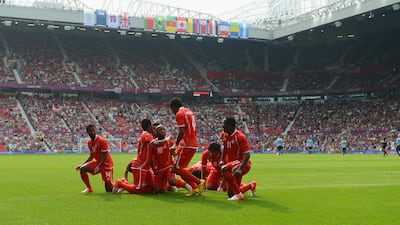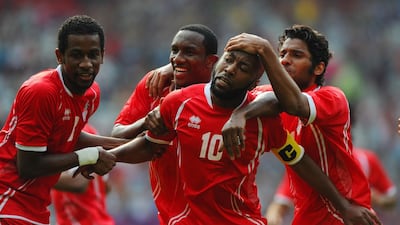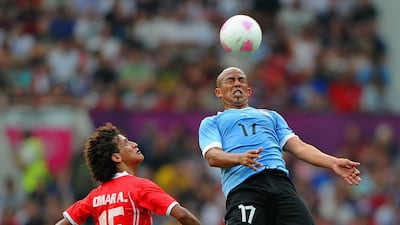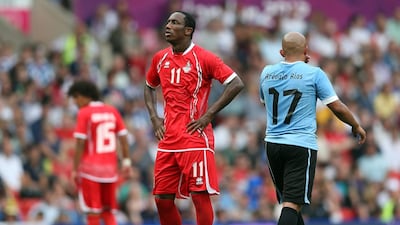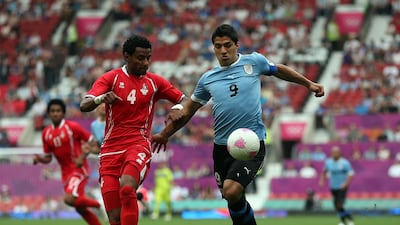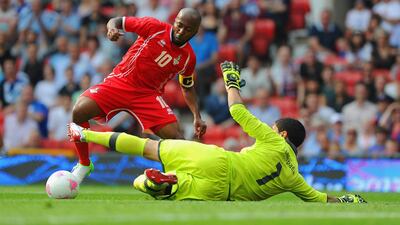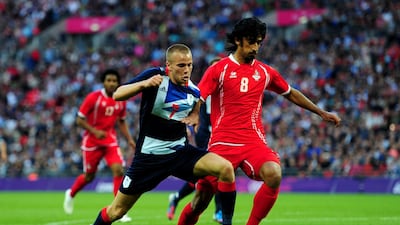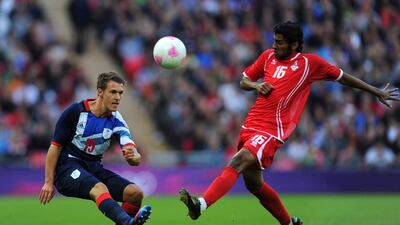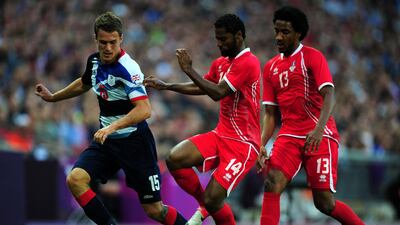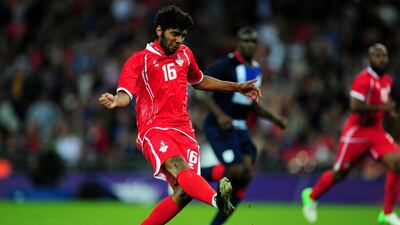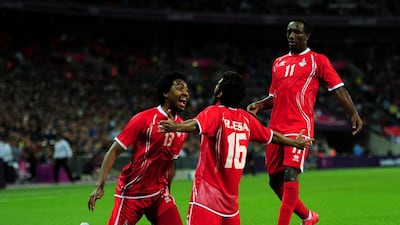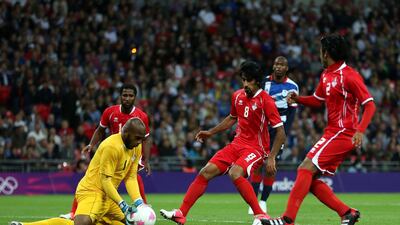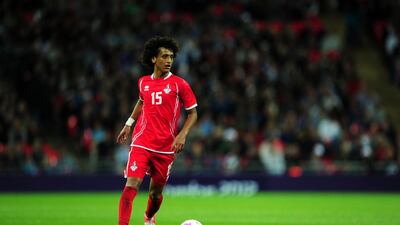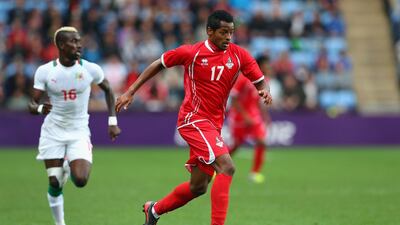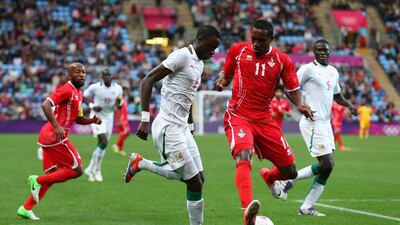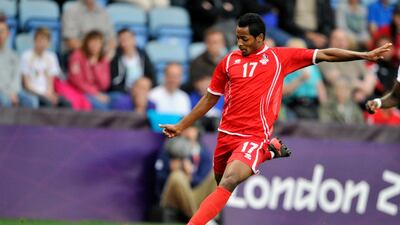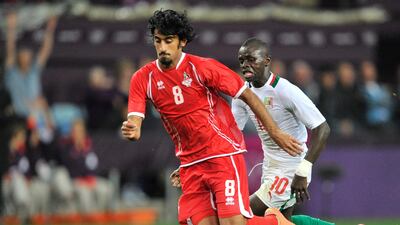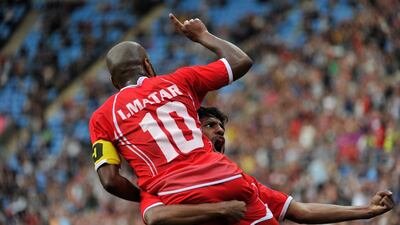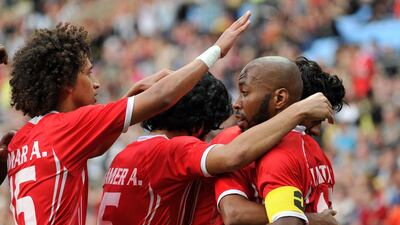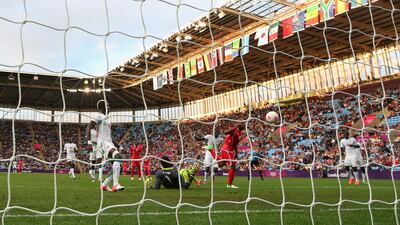Every day over three weeks, The National looks back at the 21 greatest moments in UAE sports history
With 40 minutes of the campaign left on the clock, the UAE’s dreams of a debut football appearance at the Olympics were fading – and fast.
They trailed Uzbekistan 2-0 on a cold and soggy night in Tashkent in March 2012, a defeat extinguishing their chances, another four-year wait nearly foisted upon them.
Then Ahmed Khalil scored two memorable goals in what felt a blink of the eye. The first a side-footed free-kick from 20 yards; the second a first-time rocket of a volley that skirted by the Uzbek goalkeeper. Two-nil down quickly after half time, the visitors had struck in the 51st and 55th minute to level the contest.
From down and out, the UAE had life. They had the draw that would be enough to take Mahdi Ali’s young charges to London. Yet, not content with a point, they sealed their spot with a final flourish, Haboush Saleh clinching a remarkable rallying victory deep into injury-time.
The UAE had topped Group B; a place in London was theirs. To this day, it represents one of the national team’s great comebacks, a win that Mahdi Ali proclaimed afterwards was a game “for history”.
Through the freeze and the fervour, the UAE kept cool to silence a near-majority home crowd and book the country’s first berth at a Summer Olympics. A game for history, indeed.
It felt just reward for four years of endeavour, this collection of tyros shining through the various age groups under Mahdi Ali’s tutelage. Khalil was its spearhead, but behind the robust Al Ahli striker lay the artistry of Omar Abdulrahman and the ingenuity of Amer Abdulrahman. Captain Hamdan Al Kamali often offered a reassuring presence at the back.
Then, by the conclusion of the Olympics, the secret was out: the UAE were one of Asia’s up-and-coming sides. In their Group A opener at Old Trafford, Ismail Matar put his team ahead against a Uruguay side replete with Luis Suarez and Edinson Cavani, only for the UAE to eventually lose 2-1. But the level of their play – intricate, intelligent, with flashes of flamboyance - earned them many plaudits.
The UAE lost 3-1 in their next match, against hosts Team Great Britain at Wembley, despite Rashid Eisa’s equaliser on the hour. Afterwards, Ryan Giggs sought out Omar Abdulrahman to present the UAE playmaker his shirt.
In the side’s final fixture, against Senegal, Matar again opened the scoring before their opponents pegged them back to secure a 1-1 draw. The UAE were off home, but with their reputation firmly on the rise.
A month later, Mahdi Ali was confirmed first-team manager, a position he occupied for most of the next five years. However, while the 2012 Olympics felt the beginning of the UAE’s breakthrough on the global stage, that posse of players has still to reach a World Cup. The Big Wait rumbles on. Back when that six-day celebration of their talent in London settled to memory, that seemed impossible.
